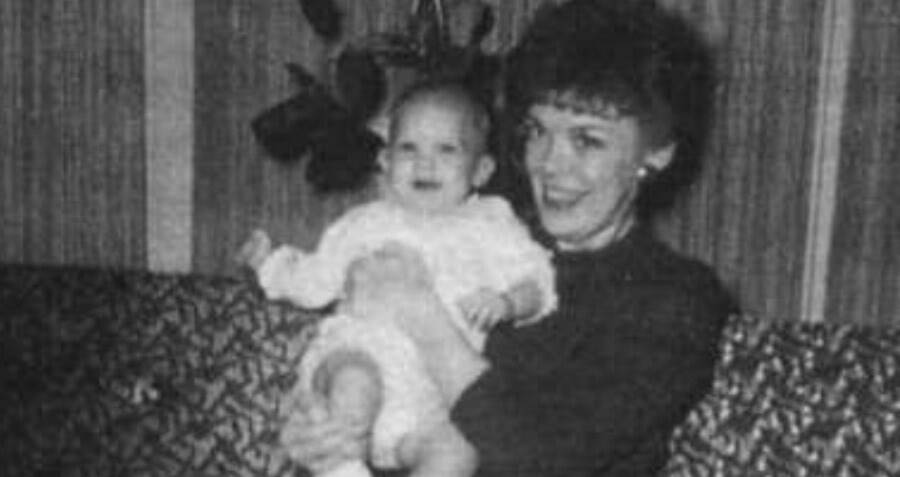**For many, the name Joyce Dahmer immediately conjures images of unspeakable horror, forever linked to her son, Jeffrey Dahmer, the notorious "Milwaukee Cannibal" whose heinous crimes shocked the world.** But behind the chilling headlines and the macabre fascination lies a woman whose life was far more complex, marked by profound personal struggles, mental health battles, and an enduring, albeit tragic, legacy. This article delves into the life of Joyce Dahmer, moving beyond the sensationalism to explore her journey from a young woman to the mother of one of history's most infamous serial killers. We will examine her early life, her marriage to Lionel Dahmer, the challenges she faced as a parent, and her often-overlooked efforts to find purpose and healing in the wake of unimaginable tragedy. Her story, while undeniably intertwined with her son's dark deeds, offers a poignant look at the ripple effects of mental illness, guilt, and the relentless search for understanding.
Table of Contents:
- The Life of Joyce Dahmer: A Biography
- Early Life and Marriage: Joyce Flint's Beginnings
- Personal Data & Biodata: Joyce Dahmer
- Parenting Struggles and Mental Health Battles
- The Arrest and Aftermath: A Mother's Ordeal
- Life After Jeffrey's Death: Seeking Purpose in California
- Media Portrayals of Joyce Dahmer
- Legacy and Death: The End of a Troubled Life
The Life of Joyce Dahmer: A Biography
The narrative of Joyce Dahmer is often overshadowed by the monstrous acts of her son, Jeffrey. Yet, to truly understand the full scope of this tragic family saga, it is crucial to peel back the layers of public perception and delve into the life of the woman who bore and raised him. Joyce Dahmer was not merely a footnote in a gruesome criminal case; she was a human being grappling with profound personal demons, a tumultuous marriage, and ultimately, the unimaginable burden of being the mother of a serial killer. Her experiences and parenting style have been examined extensively in attempts to shed light on the upbringing of the infamous serial killer, but her individual struggles often get lost in the analysis. Born Annette Joyce Flint, and also known affectionately as "Rocky" by those close to her, her life began long before the world learned the name Dahmer in connection with unspeakable crimes. Her biography, as pieced together from various accounts, paints a picture of a woman whose journey was fraught with challenges from the outset. From her early professional life as a teletype machine instructor and manager to her later work in HIV/AIDS advocacy, Joyce Dahmer’s story is a testament to the enduring human spirit, even when faced with the most crushing of realities. Her life was a continuous struggle, not only to understand her son but also to find her own peace and purpose amidst the chaos that engulfed her family.Early Life and Marriage: Joyce Flint's Beginnings
Joyce Annette Flint was born on February 7, 1936, in Columbus, Wisconsin, USA. She was the daughter of Floyd and Lillian Flint (née Rundberg). Her early years, while not extensively documented in public records, are understood to have laid the foundation for a life that would later become inextricably linked to one of history's most chilling criminal cases. On August 22, 1959, Joyce Flint married Lionel Herbert Dahmer, a chemistry student who would later become a respected analytical chemist. This union marked a pivotal moment in her life, setting the stage for the family dynamics that would profoundly influence the development of their children. After their marriage, the couple eventually moved to Bath, Ohio. It was here that they began their family, welcoming their first son, Jeffrey Lionel Dahmer, in 1960, and later, their second son, David, in 1966. The early years of their marriage and the raising of their children were reportedly marked by considerable tension and difficulties, particularly concerning Joyce’s mental health. These foundational years, though seemingly ordinary from the outside, were in fact a crucible of complex emotions and personal struggles that would eventually contribute to the tragic narrative of the Dahmer family.Personal Data & Biodata: Joyce Dahmer
To provide a clearer understanding of the individual behind the headlines, here is a summary of key personal data for Joyce Dahmer: | Category | Details | | :---------------- | :---------------------------------------------------------------------------- | | **Full Name** | Annette Joyce Flint Dahmer (also known as "Rocky") | | **Born** | February 7, 1936 | | **Birth Place** | Columbus, Wisconsin, USA | | **Died** | November 27, 2000 (aged 64) | | **Death Place** | Fresno, California, USA | | **Cause of Death**| Breast Cancer | | **Spouse** | Lionel Herbert Dahmer (married August 22, 1959) | | **Children** | Jeffrey Lionel Dahmer, David Dahmer | | **Parents** | Floyd Flint, Lillian Flint (née Rundberg) | | **Occupation** | Teletype Machine Instructor, Manager, Retirement Home Worker, HIV/AIDS Case Manager | | **Known For** | Mother of notorious serial killer Jeffrey Dahmer, HIV/AIDS Advocate |Parenting Struggles and Mental Health Battles
The challenges faced by Joyce Dahmer as a mother were immense, extending far beyond the typical difficulties of raising children. Her life was significantly impacted by her own mental health issues, which in turn, colored her parenting style and the home environment she provided for her sons. It has been widely reported that she struggled immensely to raise a kid who would eventually become the Milwaukee Cannibal. These struggles were not merely anecdotal but were deeply rooted in her personal health history, particularly her experiences with mental illness.The Shadow of Postpartum Psychosis
One of the most significant factors influencing Joyce Dahmer's parenting and overall well-being was her battle with postpartum psychosis. This severe mental illness, which can occur after childbirth, involves symptoms such as hallucinations, delusions, severe mood swings, and a distorted sense of reality. The "Data Kalimat" explicitly states, "She suffered from postpartum psychosis." This condition would have profoundly impacted her ability to bond with and care for her infant son, Jeffrey, in the crucial early stages of his life. The effects of postpartum psychosis can be devastating, not only for the mother but also for the entire family unit, creating an unstable and unpredictable environment. It's a condition that requires immediate and intensive medical intervention, and its long-term effects can be profound, potentially contributing to ongoing mental health challenges for the individual and affecting family dynamics for years to come.Allegations of Abandonment and Suicide Attempts
Compounding her mental health struggles were allegations that Joyce Dahmer abandoned Jeffrey as a child. While the nature and extent of this "abandonment" are subjects of ongoing discussion and interpretation, it speaks to a period of deep distress and inability to cope with her responsibilities. Such actions, often stemming from severe mental health crises, leave lasting scars on children. The instability and emotional distance that may have resulted from her condition could have played a role in Jeffrey's development, though it is crucial to state that mental illness in a parent does not directly cause a child to become a serial killer. Furthermore, the "Data Kalimat" indicates that Joyce tried to commit suicide in 1994. This desperate act underscores the profound depth of her despair and the immense psychological burden she carried, particularly after her son's crimes came to light and he was incarcerated. Her suicide attempt highlights the devastating impact of mental illness and the immense guilt and trauma she experienced as a result of her son's actions and her perceived role in his upbringing. It paints a picture of a woman pushed to the brink, struggling to reconcile her identity with the horrifying reality of her child's deeds.The Arrest and Aftermath: A Mother's Ordeal
The arrest of Jeffrey Dahmer in July 1991 plunged Joyce Dahmer into a new, even more harrowing chapter of her life. The revelation that her son was a cannibalistic serial killer who had murdered 17 boys and men was an unimaginable horror for any parent to confront. Following his arrest, trial, and subsequent imprisonment, Joyce found herself embroiled in a complex web of mental illness, guilt, and legal battles. While her ex-husband, Lionel Dahmer, frequently spoke out about their son's crimes, even writing a book about it, Joyce tended to remain more private, her anguish often expressed through her continued struggles with mental health. The public scrutiny and the weight of her son's horrific legacy were immense. She was not only dealing with the personal grief and shock but also the societal judgment and the relentless media attention. The "Jeffrey Dahmer story" depicted her struggles, but the true depth of her suffering after his death and the continuing legal battles were often only hinted at.The Controversial Brain Donation Request
One of the most poignant and controversial aspects of Joyce Dahmer's post-arrest life was her fervent desire to donate Jeffrey's brain for research. After his murder in prison in 1994, Joyce sought to have his brain preserved and studied, believing that examining it might offer crucial insights into the neurological underpinnings of his monstrous behavior. She hoped that such research could potentially shed light on the origins of his pathology, perhaps offering answers not only for her own understanding but also for the broader scientific community seeking to comprehend the minds of serial killers. However, this request was met with significant opposition, particularly from Jeffrey's paternal grandmother and his stepmother, Shari Dahmer, who favored cremation. The legal battle over Jeffrey's remains, specifically his brain, became a public spectacle. Ultimately, a judge ruled in 1995 that Dahmer’s brain would be cremated, as reported by The Times. This decision was a profound disappointment for Joyce Dahmer, who had clung to the hope that scientific inquiry might provide some form of closure or explanation for the inexplicable horrors committed by her son. Her attempt to donate his brain underscored her desperate search for answers, a mother's last-ditch effort to comprehend the incomprehensible.Life After Jeffrey's Death: Seeking Purpose in California
In the aftermath of Jeffrey's death in 1994, Joyce Dahmer sought a fresh start, moving to California. This relocation was not merely a geographical change but a profound attempt to distance herself from the constant reminders of her son's crimes in Milwaukee and to find a new purpose amidst her enduring mental health challenges. In California, she dedicated herself to working with AIDS patients, a testament to her capacity for empathy and her desire to contribute positively to the world, even as she grappled with her own immense pain. This period of her life reveals a resilience that often goes unacknowledged when discussing Joyce Dahmer.HIV/AIDS Advocacy and The Living Room
It was in Fresno, California, that Joyce Dahmer truly found a new calling and left a significant, positive mark. After her divorce from Lionel, she initially worked at a retirement home, but her passion for helping others, particularly those marginalized and suffering, led her to become a case manager in HIV/AIDS advocacy. According to the Los Angeles Times, she became deeply involved in the community, providing support and care to individuals living with HIV/AIDS. Her commitment culminated in her founding "The Living Room," an HIV community center in Fresno. This center provided a safe and supportive environment for AIDS patients, offering resources, community, and understanding. For Joyce Dahmer, this work was more than just a job; it was a mission. It allowed her to channel her personal pain and experiences with suffering into a meaningful endeavor, providing comfort and assistance to others facing their own battles. Her dedication to HIV/AIDS advocacy, a field that requires immense compassion and strength, showcases a side of Joyce Dahmer that contrasts sharply with the public's perception of her as solely the "criminal mother." She actively sought to make a difference, demonstrating a profound capacity for healing and service in the face of her own profound sorrow.Media Portrayals of Joyce Dahmer
The story of Jeffrey Dahmer has been told and retold across various media, and with each retelling, the figure of Joyce Dahmer has been depicted, often with varying degrees of nuance and accuracy. From early biographies to recent streaming series, her role as the mother of a notorious serial killer has made her a subject of intense public interest and speculation. One prominent example is the Netflix chilling biographical crime drama series, ‘Monster: The Jeffrey Dahmer Story.’ This series offered viewers a sneak peek into the mind of Jeffrey Dahmer and chronicled the heinous murders he committed between 1978 and 1991. Moreover, the show also chronicled parts of Jeffrey’s childhood and portrayed his relationship with his parents, Lionel and Joyce Dahmer. These portrayals often highlight her struggles with mental illness, her tumultuous relationship with Lionel, and the perceived instability of their home environment. While such depictions aim to provide context for Jeffrey's crimes, they also shape public understanding of Joyce, sometimes reducing her complex life to a set of contributing factors to her son's depravity. Journal Sentinel columnist Bill Janz, who originally interviewed Joyce Flint (as she was known then) in 1993 for a series of stories, later wrote an article on December 1, 2000, after her death. These journalistic accounts, along with biographies like Brian Masters' 1993 work, "The Shrine of Jeffrey Dahmer," attempted to capture the reality of her life. However, the sensational nature of her son's crimes often meant that Joyce's personal narrative, her own pain, and her later efforts in advocacy were either minimized or viewed solely through the lens of her son's actions. She became, in many ways, a "media face" inextricably linked to the horror, rather than a person with her own struggles and triumphs.Legacy and Death: The End of a Troubled Life
Joyce Dahmer, born Joyce Flint, died on November 27, 2000, in Fresno, California, USA, at the age of 64. Her death was attributed to breast cancer, bringing a quiet end to a life that had been anything but. For years, she had carried the immense burden of being the mother of Jeffrey Dahmer, a notorious serial murderer whose name had become synonymous with evil. Her passing marked the end of a personal journey characterized by profound mental health struggles, guilt, and a relentless search for meaning in the face of unimaginable tragedy. Her legacy is undeniably complex. On one hand, she is forever associated with the horrific crimes of her son, a connection that brought her immense suffering and public scrutiny. Her struggles with postpartum psychosis and other mental health issues, coupled with the tumultuous environment of her marriage, have been analyzed endlessly in attempts to understand the origins of Jeffrey's pathology. On the other hand, Joyce Dahmer also left behind a legacy of resilience and compassion, particularly through her dedicated work with AIDS patients and her founding of "The Living Room" community center in Fresno. This aspect of her life often goes overlooked, yet it speaks volumes about her capacity for empathy and her desire to contribute positively to the world, even after experiencing the deepest forms of personal pain. Her story is a stark reminder that behind every notorious figure, there are families, individuals who must grapple with the devastating ripple effects of unimaginable actions. Joyce Dahmer’s life, marked by both profound sorrow and quiet acts of service, serves as a poignant testament to the enduring human spirit, even when navigating the darkest shadows of existence. Her story has much more to be revealed than just being the mother of a notorious serial killer; it is a narrative of a woman's struggle for understanding, healing, and ultimately, peace.Conclusion
The life of Joyce Dahmer was an intricate tapestry woven with threads of personal struggle, maternal anguish, and an unexpected dedication to humanitarian work. From her early battles with mental illness, including postpartum psychosis, and the tumultuous dynamics of her marriage to Lionel Dahmer, to the unspeakable horror of her son Jeffrey's crimes and his subsequent death, Joyce endured a lifetime of profound challenges. Yet, in the face of such overwhelming adversity, she sought to find purpose, notably through her compassionate work with AIDS patients and the establishment of "The Living Room" in Fresno. Her story transcends the sensational headlines, offering a poignant glimpse into the devastating impact of mental health issues on individuals and families, and the complex, often unseen, struggles of those connected to notorious figures. Joyce Dahmer's journey was one of immense suffering, but also of quiet resilience and a deep, albeit tragic, search for understanding and healing. We invite you to reflect on the complexities of Joyce Dahmer's life. What insights does her story offer about the intersection of mental health, family dynamics, and the ripple effects of trauma? Share your thoughts in the comments below. If this exploration of human resilience and the search for meaning resonates with you, consider sharing this article with others, or delve deeper into related topics on our site.

